Mercedes F1 engine boss rejects Bernie Ecclestone hybrid claims
- Published
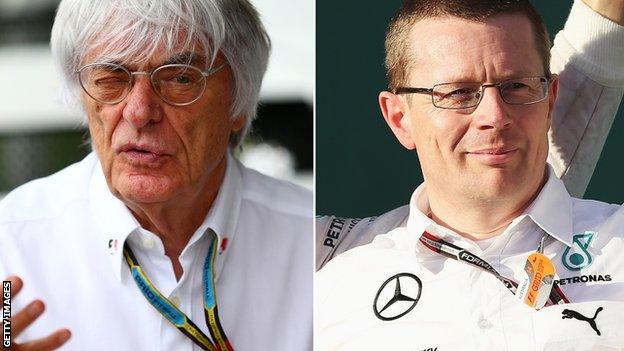
The current turbo hybrid engines were brought into F1 at the start of 2014
Monaco Grand Prix |
|---|
Venue: Circuit de Monaco-Monte Carlo Dates: 22-24 May |
Live text and radio commentary via the BBC Sport website and app, plus qualifying and race highlights on BBC One. Full coverage details here. |
Mercedes have rejected claims by Formula 1 boss Bernie Ecclestone that the current turbo hybrid engines have no relevance to road cars.
Ecclestone, 84, has long opposed the engines because they are quieter and more expensive than the previous V8s.
He told F1 Racing magazine that the engines "have nothing to do with cars; they will never be used in cars".
But Mercedes F1 engine boss Andy Cowell said road cars would soon be using "exactly the same" technology.
Two separate hybrid technologies are being used in the F1 engines, which were introduced last season.
One recovers energy from the rear axle during braking, stores it in a battery and reapplies it under acceleration. This is exactly how current hybrid road cars work.
The second - and new - technology recovers energy from the turbocharger shaft and is used for two purposes.
It can be applied directly to the rear wheels to boost acceleration, and it can be used to prepare the turbocharger system so it is ready to be used as soon as the driver presses the accelerator.
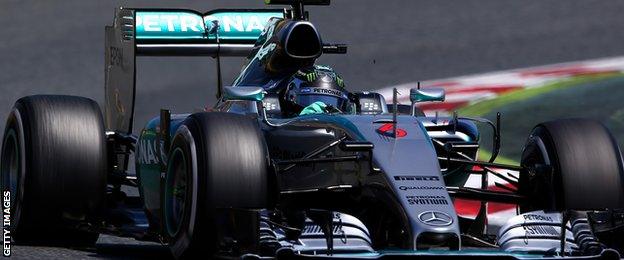
Nico Rosberg beat Mercedes team-mate Lewis Hamilton in the Spanish Grand Prix
This almost completely eradicates the delayed throttle response inherent in turbocharger engines, which is known as "turbo lag".
Combining these two hybrid technologies has meant F1 engines now have a thermal efficiency of more than 40% - better than a road-going diesel engine.
Cowell said: "People strive to make road-car engines more thermally efficient, so the fuel economy number comes down to match in with regulations for the EU and worldwide.
"The way you make an internal combustion engine more efficient is to downsize it.
"So, smaller capacity, take cylinders away, drop the rpm. Then you go: 'But that's not creating much power.' So then you put a turbocharger in it to put more oxygen in so that you can burn the same amount of fuel, previously a little bit less, but you get the power back.
"As that continues to develop, you end up with very small engines with very large turbochargers. And then you end up with a lot of lag.
"How can you reduce that? You can either put a hybrid system on, so that as you pull away from the traffic lights there is a large electric motor helping before the turbocharger spins up.
"Or you can put an electric motor on the turbocharger so that spins the compressor up so you have boost so when you pull away from the traffic lights you've got power. That's where F1 engines are road-relevant."
Cowell said this system would "definitely" start appearing on road cars.
"In the road-car world we don't need the amount of power we have in F1," he said. "So the power level will be smaller but the schematic of the power unit will be exactly the same.
"We will all end up driving cars that when we brake there is an electric motor that does the braking for us; the brake discs are there for emergency.
"All the energy when we brake will go into electric machines, both axles, store it in a battery.
"We will end up with very small capacity, low rpm, highly boosted engines that have an electric motor to spin up the compressor.
Andrew Benson on Monaco |
|---|
Monaco: a wonderful anachronism of a race, in which 900bhp Grand Prix cars are wrestled around narrow hillside streets barely wide enough to cycle on. |
F1 has its problems at the moment but, however jaded you are, there is nothing quite like the barely controlled violence, the sense of impossibility suspended, of the very best drivers at work there. |
In the Pirelli era, the race itself has become a bit of a joke - cars trundling around nose to tail, seconds a lap under the limit, to ensure the super-soft tyres can last long enough to do the ideal one-stop race. But as an event, still nothing quite matches Monaco. |
"When we're then cruising, there is the opportunity to recover energy from the turbine into that electric machine. So when we're going along the motorway, you could harvest it.
"That is exactly the same as what we do here in F1."
All four manufacturers in F1 - Mercedes, Ferrari, Renault and Honda - want to continue with the turbo hybrid engines for this reason.
A meeting of F1's rule-making strategy group last week, of which Ecclestone is a part, decided the engines would continue in F1 unchanged.
- Published19 May 2015
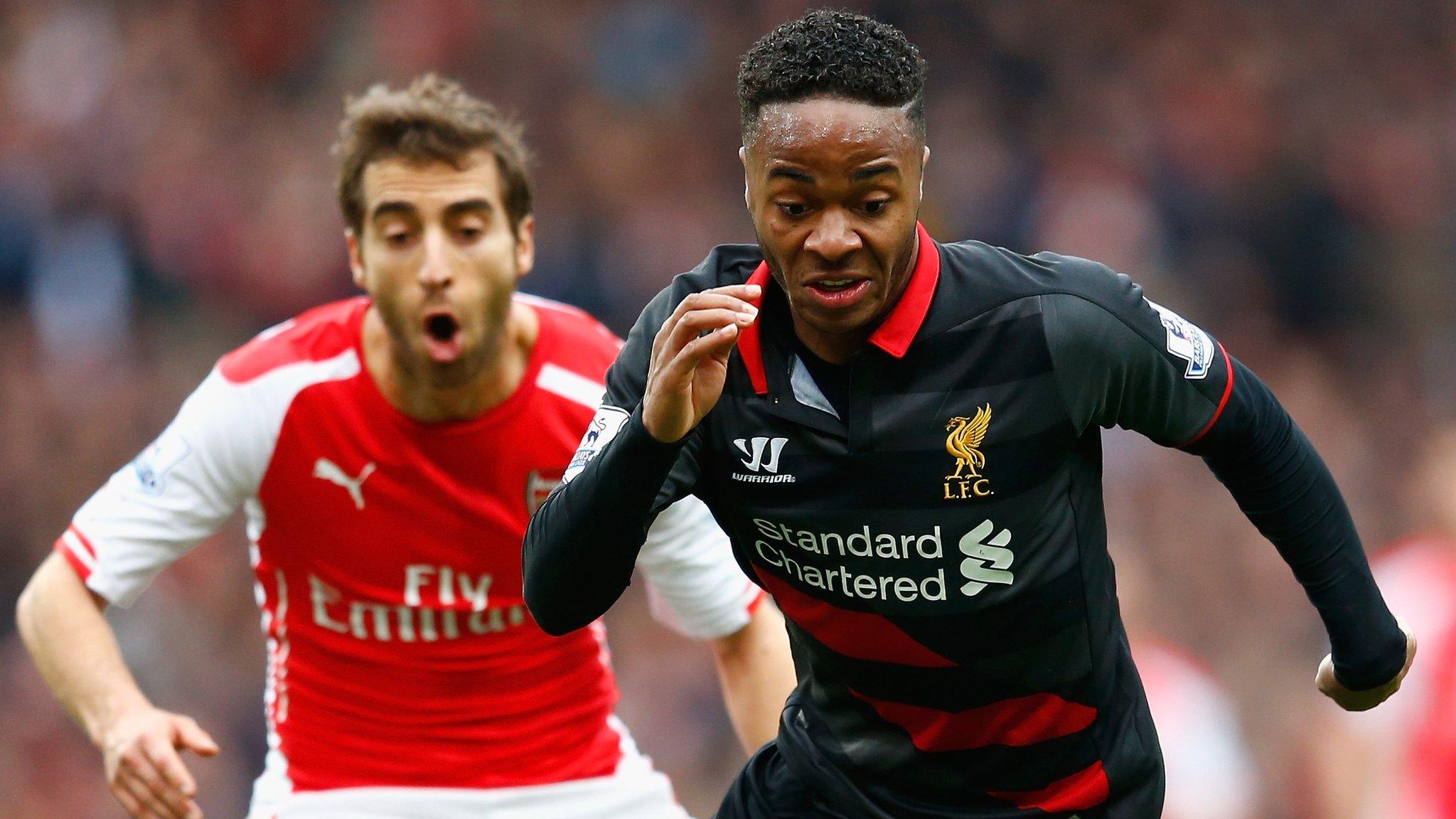
- Published19 May 2015
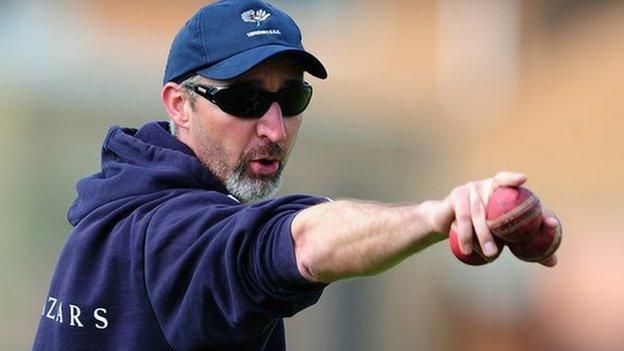
- Published19 May 2015
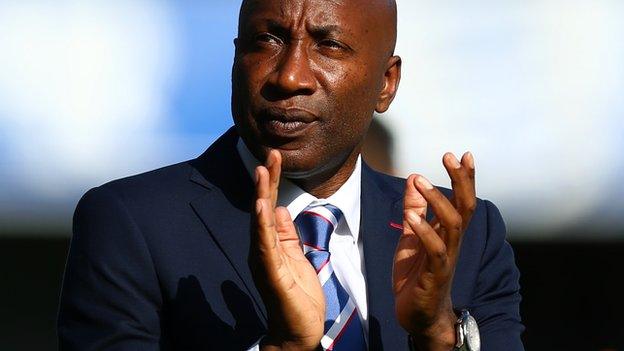
- Published18 December 2015

- Published2 November 2018
